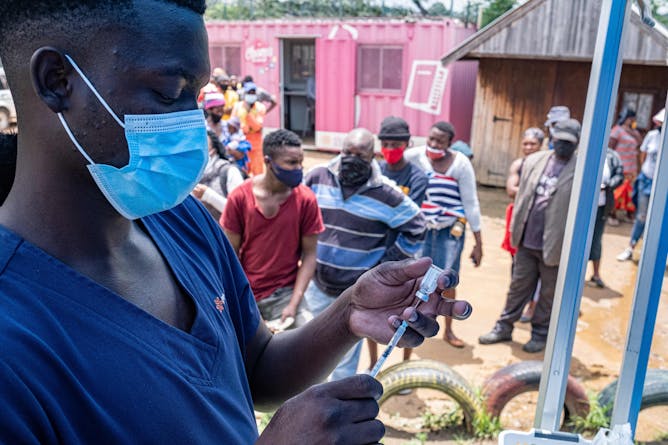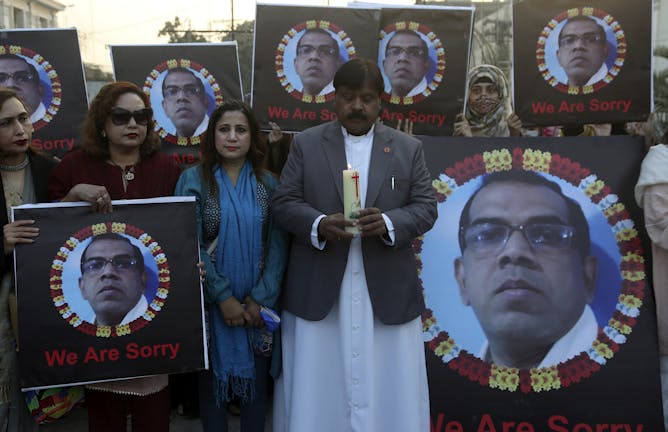|
It’s been a little over two weeks since South African scientists announced that they had identified a new SARS-CoV-2 variant. Little is known about how the variant, named Omicron, behaves. But scientists are beginning to piece together a picture of how it differs from previous variants. Harsha Somaroo unpacks what can be learnt from infection rates and hospitalisations in South Africa’s economic hub, Gauteng, which has become the epicentre of the current
resurgence of COVID-19. For their part Cari van Schalkwyk, Harry Moultrie and Juliet Pulliam share
findings from their recent paper, which is still in pre-print, about the transmissibility of the variant.
Over 70 countries criminalise blasphemy. Nearly half - 32 - are majority Muslim. Enforcement of the laws varies. In some countries, such as Iran, Pakistan, Afghanistan, Brunei, Mauritania and Saudi Arabia, blasphemy is punishable by death. Ahmet T. Kuru traces the roots of blasphemy and apostasy laws in the Muslim world. His research shows that criminalizing blasphemy and apostasy is more political than it is religious. The Quran does not require punishing
sacrilege: authoritarian politics do.
|

Harsha Somaroo, University of the Witwatersrand
Early data show that Omicron is dominating new COVID-19 cases in Gauteng province.
|

Cari van Schalkwyk, South African Centre for Epidemiological Modelling & Analysis (SACEMA) ; Harry Moultrie, National Institute for Communicable Diseases; Juliet Pulliam, South African Centre for Epidemiological Modelling & Analysis (SACEMA)
At this stage, we cannot say anything about the severity of cases with Omicron - either in primary or reinfections.
|

Ahmet T. Kuru, San Diego State University
A scholar of Islam explains how Muslim religious leaders, starting around the year 1050, worked with political rulers to challenge what they considered to be sacrilegious influence on society.
|
|
|
-
Tom Stacey, Anglia Ruskin University
Elon Musk’s dedicated EV maker is miles ahead, but Nissan has several advantages over its legacy rivals.
-
Matthew Savoca, Stanford University; Anna Robuck, Icahn School of Medicine at Mount Sinai; Lauren Kashiwabara, University of the Pacific
An estimated 8 million metric tons of plastic waste enters the ocean each year – equivalent to dumping in a garbage truckload of it every minute. A new report calls on the US to help stem the deluge.
-
Julie Boland, University of Michigan
It appears that the rhythms of your brain waves get in sync with the speech patterns of the person you’re conversing with. Videoconferencing throws off that syncing process.
-
Steven Friedman, University of Johannesburg
It was the biases of its ‘first world’ which prevented South Africa from mobilising the energies and talents of most of its people against COVID-19.
|
|

Elin Angharad Thomas, Queen's University Belfast
Among the dozens of endangered species, is a spiky snail named after The Clash lead singer, Joe Strummer.
|